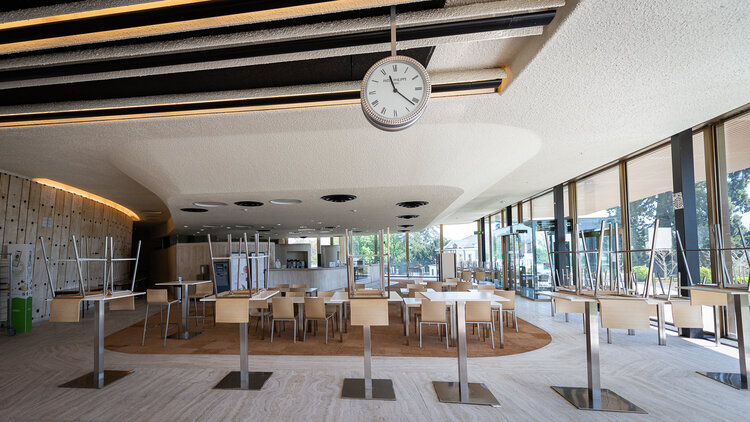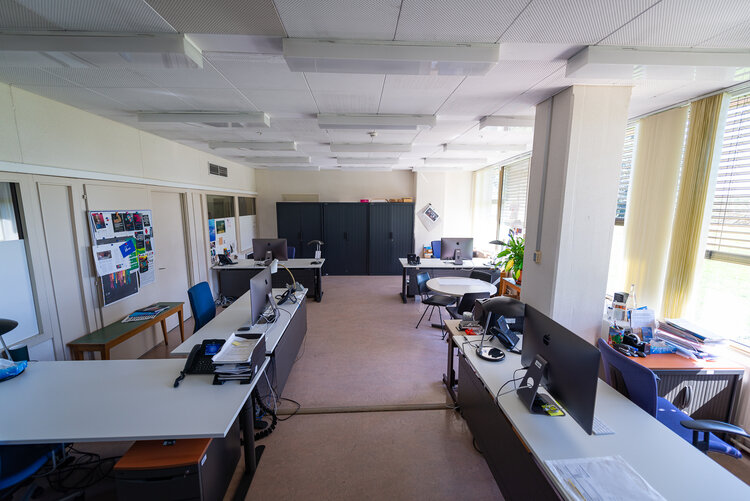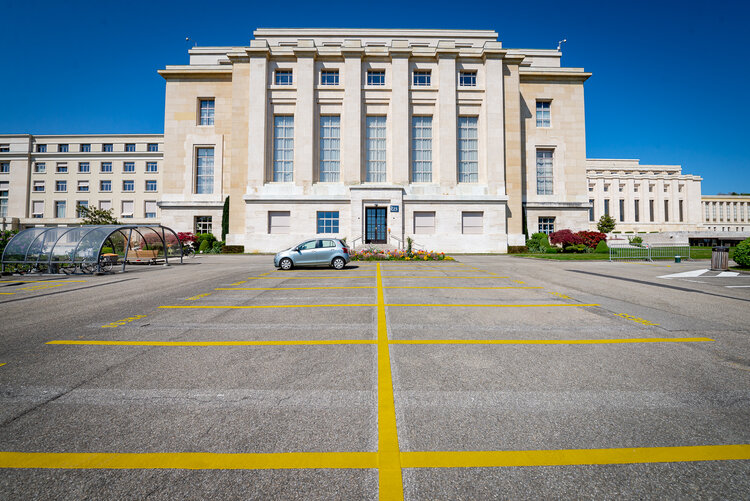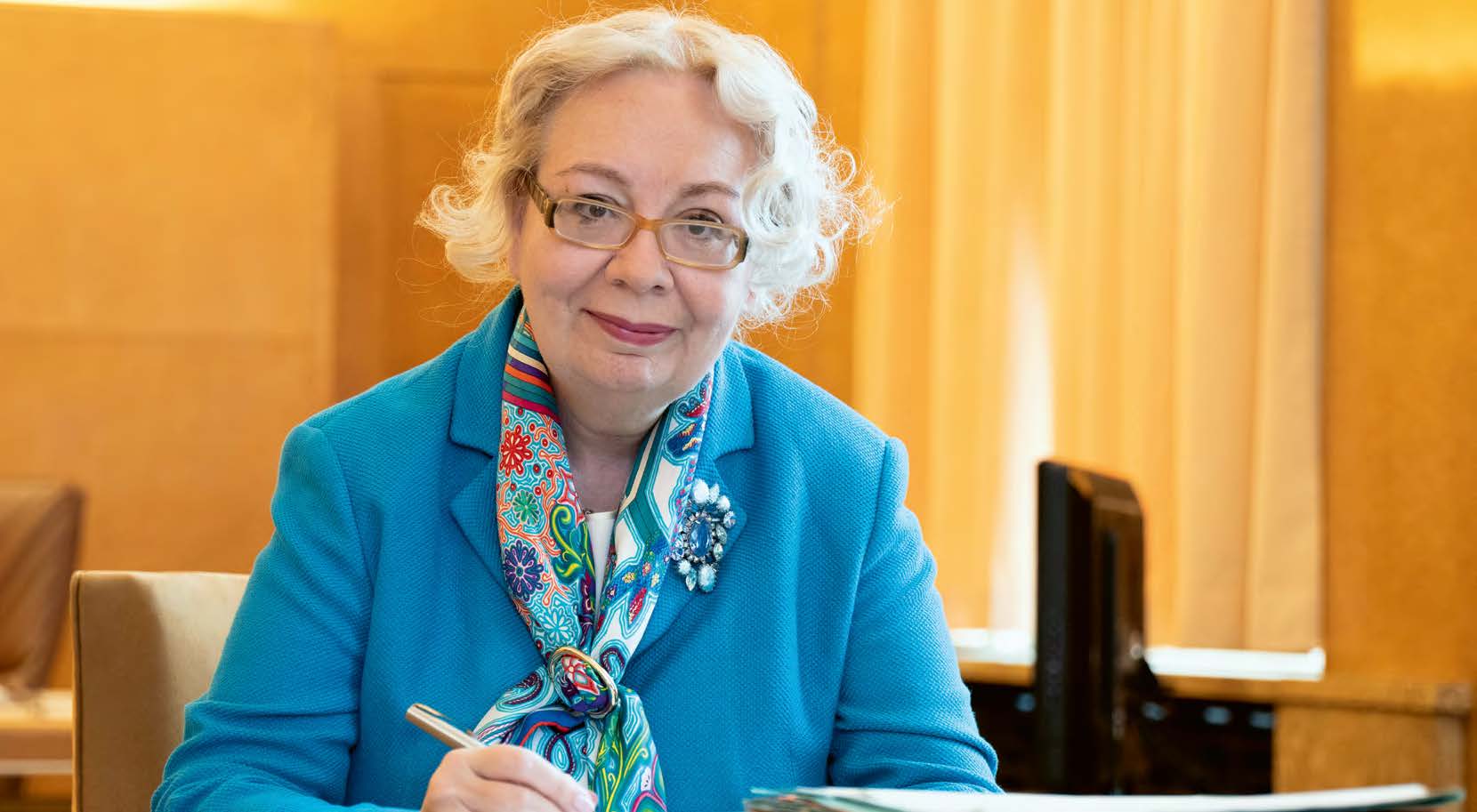“We were prepared for the pandemic, but it will have financial consequences”
Her email broadcasts have become a regular fixture during our confinement. But what of the Director-General herself? Only recently arrived in her position, Tatiana Valovaya has had to confront a situation unknown to her predecessors.
We ask her (by videoconference – Covid oblige) how she has dealt with the challenge, the financial constraints facing the organization, her views on teleworking, how staff will return to the Palais, and the future of open space.
UNOG was among the first HQ duty stations to take the decision to close its premises and to ask its staff to telecommute. Could you let us know what were the concrete measures you took to ensure business continuity at a time when UNOG wasn’t prepared for such a scenario?
We started telecommuting practically at the same time as Vienna and New York but were prepared very early, with scenarios at the ready for pandemics such as COVID. For this I received a special training last autumn in New York, although I never thought I would have to use it. And then in January, we updated our business continuity plan. Prior to closure we had two weeks of full preparation to ensure business continuity before we went to full teleworking.
“Last autumn I received a special training on business continuity, but I never thought I would have to use it”
I am also the designated official for Switzerland and responsible for security not only of UNOG but of the whole United Nations family in the country. On the Saturday before the closure, I convened the Security Management Team, which comprises representatives of all United Nations organizations in Geneva. The situation was deteriorating fast. We realized at that point that it wasn’t enough to have teleworking as an option, but that it would have to be made mandatory.
I am proud to say that staff are delivering very well. Some teams are even working more than before, and I would like to thank them for their hard work.

Many are already talking about the aftermath of COVID-19 and the financial crisis that will certainly impact the UN and, potentially, job security. What are your views on this and what measures will you take to preserve job security?
Unfortunately, the current crisis is not improving our financial situation. It is now worse than one year ago, and COVID-19 is not the reason for this. I am very pragmatic and know we will face many financial constraints in the upcoming year. We are preparing for different scenarios.
“Unfortunately our financial situation is worse than one year ago”
Our priority remains the payment of salaries. For this, there is already a recruitment freeze. And we are cutting all non-essential expenses. But some expenses will increase. Cleaning for example. Once we are back to work, we will need to keep a high level of hygiene to protect staff.
Talking about post-COVID, we are realizing that some jobs are crucial to the organization, mainly in the field of information technology. Unfortunately, some jobs will be less secure.
For conferences, we can expect a positive change. Even before this pandemic, we had started to think about video conferencing and how to conduct international activities online. There is a golden opportunity for many of our staff to acquire new skills and train others. We need to be more competitive once this crisis is over. UNOG has many possibilities to show its leadership within the system.

An important number of staff who are currently experiencing teleworking believe that it isn’t the way forward because of different constraints, personal and professional. Do you believe that the UN will witness an important shift in its way of operating once the COVID-19 crisis is over?
Personally, I never regarded teleworking as a new, exclusive way of working. Teleworking can be useful for some staff, mainly for those with young children or those who need flexibility for a better work/home balance. Nobody thought that teleworking would be five days a week.
“Teleworking is difficult and demanding, we are on call all the time”
This experience shows that teleworking is difficult and demanding. It makes us work 24 hours a day, seven days a week. We stay on call all the time. As humans we need to socialize, to meet to brainstorm and discuss, to be part of a physical community, to work in teams. And these are the main limitations of teleworking. I believe that once we are back to normal, telework will be more present in certain professions for efficiency reasons. However, it won’t be imposed. It will always be the individual choice of staff.
Even though there is no clear indication of a potential return in the near future, could you let us know the measures you envisage to take to ensure a safe return to work for all staff? You have already mentioned the increased level of hygiene. Do you envisage a return of staff in batches for example?
Any decision we take needs to be aligned with the Swiss federal and cantonal authorities. Switzerland will probably adopt a gradual approach regarding the return to work. We will include staff representatives in designing the programme for the return.
I hope the decision on return to work will be taken in a coordinated fashion by all international organizations in Geneva as it was for telecommuting.
“We won’t encourage staff to return to work unless we are sure they will be safe.”
One important thing is that we won’t encourage staff to return to work unless we are sure they will be safe. A gradual return to work is envisaged, as we don’t want to compromise the results of the confinement that have proven useful up to now. Indeed, we don’t have many cases of infected staff.

As you know, UNOG staff have expressed concerns regarding open space in the new H building as part of the SHP renovation project. With the COVID-19, the concerns are back on the table for medical reasons. Do you envisage changes in the workspace layout of H building to answer those concerns?
I understand staff awareness and anxiety regarding open space. We have already put in place a consultative mechanism to discuss, through staff representatives, the concerns and questions that were asked during the 27 February townhall.
“I understand staff awareness and anxiety regarding open space.”
Of course, we have serious limitations. There is the SHP budget and programme, the General Assembly decision on flexible working space and all these are things that cannot be changed. So, we have to work based on these elements and implement the solutions that can be found through discussion.
For staff in Geneva, open space is a future, whereas in New York it is the present. Staff in New York will go back to work in open space, and we need to learn from their experience. But as the construction work has slowed down now, the move to H building will, likely, also be postponed.



